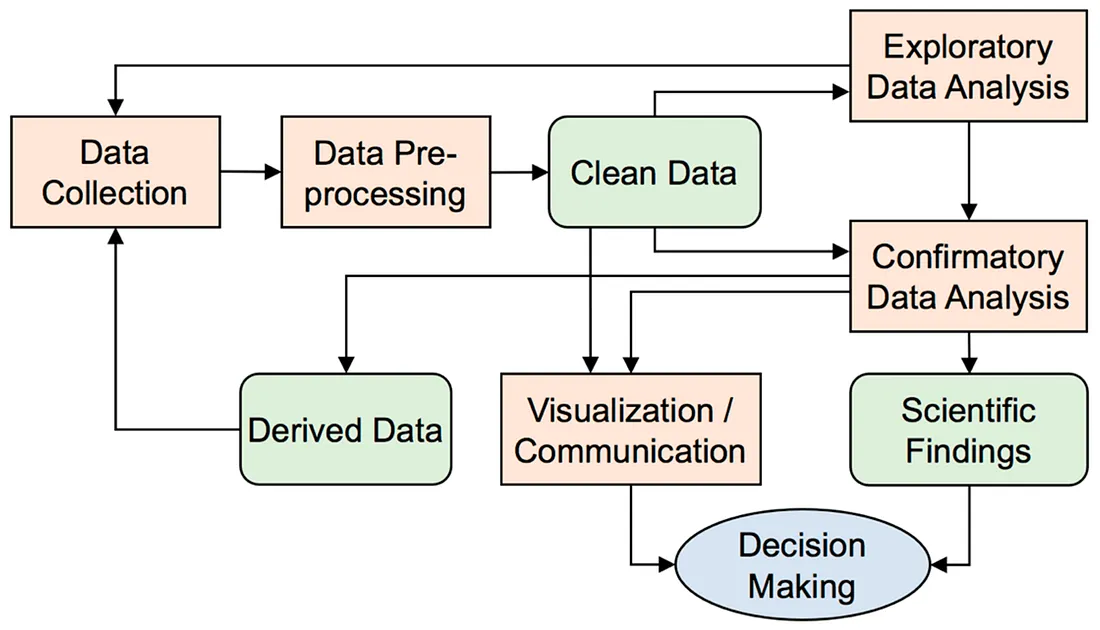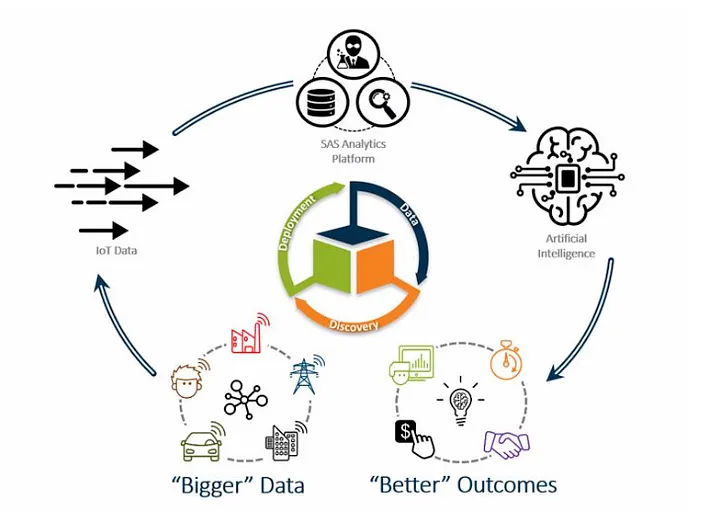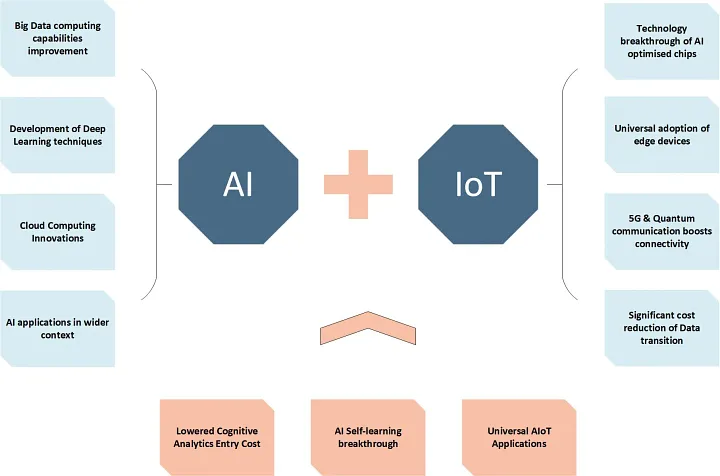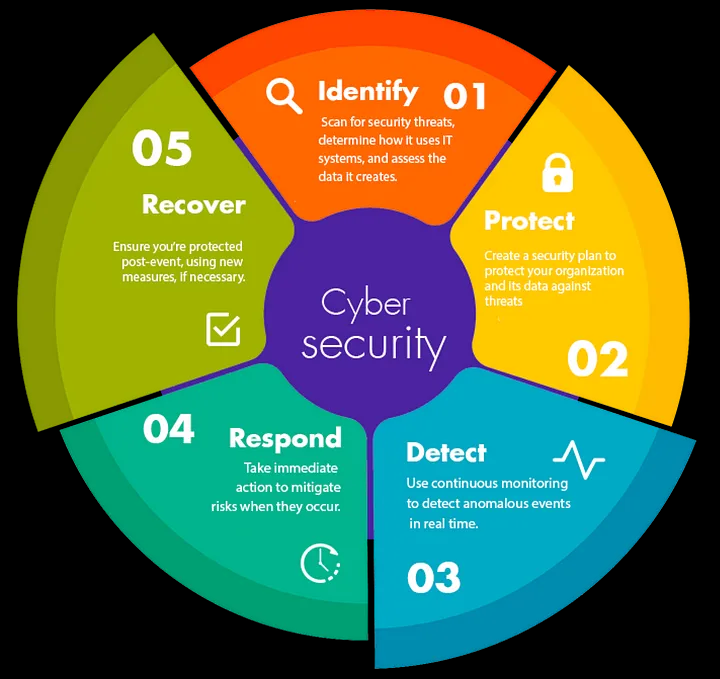 Technology peripherals
Technology peripherals
 AI
AI
 What are the roles of artificial intelligence and machine learning in the Internet of Things?
What are the roles of artificial intelligence and machine learning in the Internet of Things?
What are the roles of artificial intelligence and machine learning in the Internet of Things?

The integration of artificial intelligence (AI) and machine learning (ML) into the Internet of Things (IoT) system marks an important progress in the development of intelligent technology. This convergence is called AIoT (artificial intelligence for the Internet of Things), and it not only enhances the capabilities of the system, but also changes the way IoT systems operate, learn and adapt in the environment. Let’s explore this integration and what it means.
The Role of Artificial Intelligence and Machine Learning in the Internet of Things
Enhanced Data Processing and Analysis
Advanced Data Interpretation: IoT devices generate massive amounts of data. Artificial intelligence and machine learning can cleverly cull this data, extract valuable insights, and identify patterns that are invisible to a human perspective or traditional data processing methods.
Predictive analytics uses artificial intelligence and machine learning to predict future trends based on historical data, which is especially useful in predictive maintenance of industrial equipment. The system can accurately predict the time before a failure occurs and take appropriate maintenance measures, significantly reducing downtime and maintenance costs.

Autonomous decision-making and adaptive learning
Autonomous decision-making: Artificial intelligence enables IoT devices to make decisions based on the data they collect Make independent decisions. This autonomy is critical for applications such as self-driving cars or automated industrial processes, where real-time decision-making is critical.
Adaptive Learning: Machine learning algorithms learn and adapt over time, improving their decision-making capabilities. This means that IoT systems can become more efficient and effective through use because they can learn from past experiences and adjust their operations accordingly.

Personalization and User Experience
In consumer IoT areas such as smart homes, artificial intelligence and machine learning can customize the user experience based on the user’s preferences and Habits, automatically optimizing your device's settings for increased comfort and efficiency.
Through AI-driven voice assistants and chatbots, interactions between users and IoT devices become more natural, thereby improving user experience and accessibility.
Operational Efficiency and Automation
Process Optimization: In areas such as manufacturing, AIoT can streamline operations, optimize supply chains, and enhance quality control, thereby increasing productivity and reducing costs.
Energy Management: AIoT helps smart grid management, optimizes energy distribution and consumption, and contributes to sustainable development.

Predictive Maintenance and Operational Efficiency
Predictive maintenance enhanced by IoT (Internet of Things), AI (Artificial Intelligence) and ML (Machine Learning) and operational efficiency are crucial in modern industry.
Predictive maintenance involves using IoT sensors to collect equipment data, which is analyzed by artificial intelligence and machine learning algorithms to predict potential failures before they occur. This proactive approach allows for timely intervention, minimizing downtime and maintenance costs.
Operational efficiency refers to using AIoT to optimize processes. This includes process optimization, resource management, quality control, supply chain optimization and improving employee productivity. IoT sensors provide real-time data that AI analyzes to enhance decision-making, streamline operations, and improve resource utilization.
Safety and Security
Improved security protocols: Artificial intelligence can enhance IoT security by detecting and responding to cyber threats in real-time, considering the proliferation of IoT devices and their access to sensitive data Access, this is a crucial aspect.
Safety Monitoring: In industrial environments, AIoT can improve worker safety by monitoring safety conditions, detecting dangerous situations and initiating emergency protocols.

Practical Applications and Case Studies of AIOT
Smart Cities
Traffic Management: AIoT Systems for Optimization Traffic flow in urban areas. Sensors collect vehicle movement data, which AI algorithms analyze to manage traffic lights and reduce congestion.
Case Study: Singapore’s Smart Nation initiative leverages AIoT for real-time traffic monitoring and dynamic public transport routes to improve urban mobility.
Healthcare
Remote patient monitoring: Wearable IoT devices collect health data (heart rate, blood pressure, etc.) and artificial intelligence analyzes this data to detect health problems in their early stages sign.
Case Study: Medtronic’s artificial intelligence blood glucose monitoring and insulin pump system continuously adjusts insulin levels for diabetic patients based on real-time data.
Manufacturing
Predictive Maintenance: AIoT sensors on machinery detect anomalies that indicate potential failures. This data helps schedule maintenance before failure occurs.
Case Study: Siemens uses AIoT in its gas turbines to predict maintenance needs, significantly reducing unplanned downtime.
Agriculture
PrecisionQuasi-agriculture: AIoT devices monitor soil conditions, weather and crop health, informing farmers of the best planting time, watering and fertilizing.
Case Study: John Deere’s AIoT tractors and equipment enable precision planting and fertilization, increasing crop yields and resource efficiency.
Retail
Enhanced Customer Experience: AIoT helps personalize the shopping experience. Sensors track customers’ movements, and artificial intelligence provides tailored recommendations.
Case Study: AmazonGo store uses AIoT to provide a checkout-free shopping experience, and the system will automatically charge customers for the goods they purchase.
Energy
Smart Grid: AIoT optimizes energy distribution and consumption, predicts demand peaks and adjusts supply accordingly.
Case Study: Italian energy company Enel uses AIoT for real-time grid management and efficient energy distribution.
Home Automation
Smart Home: AIoT devices such as thermostats, lights, and security systems can learn user preferences and automate the home environment for comfort and energy conservation.
Case Study: Nest’s smart thermostat uses AIoT to learn homeowners’ preferences and automatically adjust home temperatures for optimal comfort and efficiency.
Transportation Logistics
Fleet Management: AIoT devices track vehicle location, fuel usage and maintenance needs to optimize routes and schedules.
Case Study: UPS uses AIoT for route optimization, reducing fuel consumption and shortening delivery times.
Environmental Monitoring
Pollution Tracking: Sensors collect environmental data and artificial intelligence models predict pollution levels to inform public health responses.
Case Study: IBM’s “Green Horizon” program uses AIoT to monitor air quality and make recommendations for pollution control in cities such as Beijing.
Public Safety
Emergency Response: AIoT systems can detect emergencies (such as fires) and alert relevant authorities, thereby shortening response times.
Case Study: In California, AIoT sensors are used for early wildfire detection, allowing for faster emergency response and preventing widespread damage.
The above is the detailed content of What are the roles of artificial intelligence and machine learning in the Internet of Things?. For more information, please follow other related articles on the PHP Chinese website!

Hot AI Tools

Undresser.AI Undress
AI-powered app for creating realistic nude photos

AI Clothes Remover
Online AI tool for removing clothes from photos.

Undress AI Tool
Undress images for free

Clothoff.io
AI clothes remover

Video Face Swap
Swap faces in any video effortlessly with our completely free AI face swap tool!

Hot Article

Hot Tools

Notepad++7.3.1
Easy-to-use and free code editor

SublimeText3 Chinese version
Chinese version, very easy to use

Zend Studio 13.0.1
Powerful PHP integrated development environment

Dreamweaver CS6
Visual web development tools

SublimeText3 Mac version
God-level code editing software (SublimeText3)

Hot Topics
 1664
1664
 14
14
 1422
1422
 52
52
 1316
1316
 25
25
 1267
1267
 29
29
 1239
1239
 24
24
 Bytedance Cutting launches SVIP super membership: 499 yuan for continuous annual subscription, providing a variety of AI functions
Jun 28, 2024 am 03:51 AM
Bytedance Cutting launches SVIP super membership: 499 yuan for continuous annual subscription, providing a variety of AI functions
Jun 28, 2024 am 03:51 AM
This site reported on June 27 that Jianying is a video editing software developed by FaceMeng Technology, a subsidiary of ByteDance. It relies on the Douyin platform and basically produces short video content for users of the platform. It is compatible with iOS, Android, and Windows. , MacOS and other operating systems. Jianying officially announced the upgrade of its membership system and launched a new SVIP, which includes a variety of AI black technologies, such as intelligent translation, intelligent highlighting, intelligent packaging, digital human synthesis, etc. In terms of price, the monthly fee for clipping SVIP is 79 yuan, the annual fee is 599 yuan (note on this site: equivalent to 49.9 yuan per month), the continuous monthly subscription is 59 yuan per month, and the continuous annual subscription is 499 yuan per year (equivalent to 41.6 yuan per month) . In addition, the cut official also stated that in order to improve the user experience, those who have subscribed to the original VIP
 To provide a new scientific and complex question answering benchmark and evaluation system for large models, UNSW, Argonne, University of Chicago and other institutions jointly launched the SciQAG framework
Jul 25, 2024 am 06:42 AM
To provide a new scientific and complex question answering benchmark and evaluation system for large models, UNSW, Argonne, University of Chicago and other institutions jointly launched the SciQAG framework
Jul 25, 2024 am 06:42 AM
Editor |ScienceAI Question Answering (QA) data set plays a vital role in promoting natural language processing (NLP) research. High-quality QA data sets can not only be used to fine-tune models, but also effectively evaluate the capabilities of large language models (LLM), especially the ability to understand and reason about scientific knowledge. Although there are currently many scientific QA data sets covering medicine, chemistry, biology and other fields, these data sets still have some shortcomings. First, the data form is relatively simple, most of which are multiple-choice questions. They are easy to evaluate, but limit the model's answer selection range and cannot fully test the model's ability to answer scientific questions. In contrast, open-ended Q&A
 SK Hynix will display new AI-related products on August 6: 12-layer HBM3E, 321-high NAND, etc.
Aug 01, 2024 pm 09:40 PM
SK Hynix will display new AI-related products on August 6: 12-layer HBM3E, 321-high NAND, etc.
Aug 01, 2024 pm 09:40 PM
According to news from this site on August 1, SK Hynix released a blog post today (August 1), announcing that it will attend the Global Semiconductor Memory Summit FMS2024 to be held in Santa Clara, California, USA from August 6 to 8, showcasing many new technologies. generation product. Introduction to the Future Memory and Storage Summit (FutureMemoryandStorage), formerly the Flash Memory Summit (FlashMemorySummit) mainly for NAND suppliers, in the context of increasing attention to artificial intelligence technology, this year was renamed the Future Memory and Storage Summit (FutureMemoryandStorage) to invite DRAM and storage vendors and many more players. New product SK hynix launched last year
 SOTA performance, Xiamen multi-modal protein-ligand affinity prediction AI method, combines molecular surface information for the first time
Jul 17, 2024 pm 06:37 PM
SOTA performance, Xiamen multi-modal protein-ligand affinity prediction AI method, combines molecular surface information for the first time
Jul 17, 2024 pm 06:37 PM
Editor | KX In the field of drug research and development, accurately and effectively predicting the binding affinity of proteins and ligands is crucial for drug screening and optimization. However, current studies do not take into account the important role of molecular surface information in protein-ligand interactions. Based on this, researchers from Xiamen University proposed a novel multi-modal feature extraction (MFE) framework, which for the first time combines information on protein surface, 3D structure and sequence, and uses a cross-attention mechanism to compare different modalities. feature alignment. Experimental results demonstrate that this method achieves state-of-the-art performance in predicting protein-ligand binding affinities. Furthermore, ablation studies demonstrate the effectiveness and necessity of protein surface information and multimodal feature alignment within this framework. Related research begins with "S
 Laying out markets such as AI, GlobalFoundries acquires Tagore Technology's gallium nitride technology and related teams
Jul 15, 2024 pm 12:21 PM
Laying out markets such as AI, GlobalFoundries acquires Tagore Technology's gallium nitride technology and related teams
Jul 15, 2024 pm 12:21 PM
According to news from this website on July 5, GlobalFoundries issued a press release on July 1 this year, announcing the acquisition of Tagore Technology’s power gallium nitride (GaN) technology and intellectual property portfolio, hoping to expand its market share in automobiles and the Internet of Things. and artificial intelligence data center application areas to explore higher efficiency and better performance. As technologies such as generative AI continue to develop in the digital world, gallium nitride (GaN) has become a key solution for sustainable and efficient power management, especially in data centers. This website quoted the official announcement that during this acquisition, Tagore Technology’s engineering team will join GLOBALFOUNDRIES to further develop gallium nitride technology. G
 Iyo One: Part headphone, part audio computer
Aug 08, 2024 am 01:03 AM
Iyo One: Part headphone, part audio computer
Aug 08, 2024 am 01:03 AM
At any time, concentration is a virtue. Author | Editor Tang Yitao | Jing Yu The resurgence of artificial intelligence has given rise to a new wave of hardware innovation. The most popular AIPin has encountered unprecedented negative reviews. Marques Brownlee (MKBHD) called it the worst product he's ever reviewed; The Verge editor David Pierce said he wouldn't recommend anyone buy this device. Its competitor, the RabbitR1, isn't much better. The biggest doubt about this AI device is that it is obviously just an app, but Rabbit has built a $200 piece of hardware. Many people see AI hardware innovation as an opportunity to subvert the smartphone era and devote themselves to it.
 How to convert XML files to PDF on your phone?
Apr 02, 2025 pm 10:12 PM
How to convert XML files to PDF on your phone?
Apr 02, 2025 pm 10:12 PM
It is impossible to complete XML to PDF conversion directly on your phone with a single application. It is necessary to use cloud services, which can be achieved through two steps: 1. Convert XML to PDF in the cloud, 2. Access or download the converted PDF file on the mobile phone.
 The first fully automated scientific discovery AI system, Transformer author startup Sakana AI launches AI Scientist
Aug 13, 2024 pm 04:43 PM
The first fully automated scientific discovery AI system, Transformer author startup Sakana AI launches AI Scientist
Aug 13, 2024 pm 04:43 PM
Editor | ScienceAI A year ago, Llion Jones, the last author of Google's Transformer paper, left to start a business and co-founded the artificial intelligence company SakanaAI with former Google researcher David Ha. SakanaAI claims to create a new basic model based on nature-inspired intelligence! Now, SakanaAI has handed in its answer sheet. SakanaAI announces the launch of AIScientist, the world’s first AI system for automated scientific research and open discovery! From conceiving, writing code, running experiments and summarizing results, to writing entire papers and conducting peer reviews, AIScientist unlocks AI-driven scientific research and acceleration



